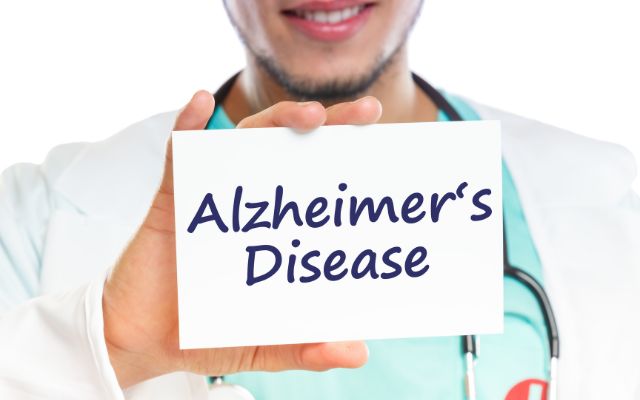Alzheimer disease- A Comprehensive Guide

Alzheimer disease is a condition that mostly affects older people and has become more known in recent years because it can be tough for those who have it and their families. In this article, we’re going to explain everything about Alzheimer’s, from what causes it, to the signs, diagnosis, how to manage it, and how to take care of someone with Alzheimer’s.
What is Alzheimer Disease?
Alzheimer’s disease is a brain problem that mostly affects memory, thinking, and how we behave. It is the most common reason for dementia, which means a big problem with thinking and doing things in everyday life.
What Makes it Happen?
We’re still not sure why some people get Alzheimer’s disease. But some things make it more likely:
- Family: If someone in your family had it, you might get it too.
- Age: Most people who get Alzheimer’s are older.
- Brain Changes: Weird things happen in the brains of people with Alzheimer’s, like clumps of stuff that shouldn’t be there.
- Other Things: Your heart, how much you know, and how you live could also change your chances.
What to Watch For
At the start, Alzheimer’s is tricky to spot. It can look like regular aging. But as time goes on, the signs get clearer. Here’s what to watch for:
- Forgetting Stuff: Everyone forgets things, but with Alzheimer’s, it’s really bad, and it messes up daily life.
- Hard Choices: Things like thinking, planning, and solving problems get tough.
- Everyday Tasks: Doing daily stuff like cooking, getting dressed, or using a phone gets hard.
- Where Am I?: People get lost in places they know really well.
- Seeing Stuff: Understanding what you see gets tough.
- Saying Things: Finding the right words becomes hard.
- Things Disappear: People put stuff in the wrong place or lose it.
- Bad Choices: Making bad decisions, even with important stuff.
- Backing Away: Stopping work and being social.
Getting Checked and How it Changes
To see if someone has Alzheimer’s, doctors check how the person thinks and does things. They also do tests and maybe some brain scans. After checking, they can see which stage it is:
- Early Alzheimer’s: Brain changes start years before signs show up. So, it’s hard to find at this stage.
- Mild Trouble: People notice problems with thinking, but it’s not too bad yet.
- Getting Worse: Problems with thinking and doing things get worse.
- Bad Trouble: People need help with everyday things.
- Very Bad Trouble: People need help all the time.
What We Can Do
There isn’t a cure for Alzheimer’s, but we can do a few things to help:
- Medicines: There are some drugs that can help with thinking and remembering things.
- Not-Drug Ideas: Some ideas like therapy can also help.
- Being Safe: People with Alzheimer’s need a safe place to live.
- New Ideas: Sometimes, people can join studies to test new treatments.
Caring for Someone with Alzheimer’s
Taking care of someone with Alzheimer’s is a big job. Here are some things to remember:
- Learn: Find out more about Alzheimer’s so you understand what’s happening.
- Ask for Help: Talk to other people going through the same thing. You can also talk to experts.
- Stay Safe: Make sure the home is safe for the person with Alzheimer’s.
- Talk Carefully: Use easy words, be patient, and keep a routine.
- Good Times: Do fun stuff to make the person happy.
What’s Coming
Right now, there’s no way to stop Alzheimer’s. But many people are studying it, and we hope to find better ways to help in the future.
Alzheimer’s Affects Everyone
Alzheimer’s doesn’t just hurt the person who has it. It’s tough for families, and it can cost a lot of money to take care of. We need to learn more about it, find ways to stop it, and help families who are dealing with it.
FAQ
1. What is Alzheimer’s disease?
Alzheimer’s disease is a brain disorder that primarily affects memory, thinking, and behavior. It is the most common cause of dementia, which leads to a decline in cognitive abilities.
2. What causes Alzheimer’s disease?
The exact cause of Alzheimer’s is not fully understood, but factors like genetics, age, brain changes, and lifestyle may contribute to its development.
3. What are the common symptoms of Alzheimer’s disease?
Common symptoms include memory loss, difficulty with problem-solving and daily tasks, confusion, trouble with language, misplacing items, changes in judgment, and personality or mood changes.
4. How is Alzheimer’s disease diagnosed?
Diagnosis involves a medical evaluation, including physical and neurological exams, mental status testing, and sometimes brain imaging. Early detection can be challenging.
5. What are the stages of Alzheimer’s disease?
Alzheimer’s typically progresses through stages: preclinical, mild cognitive impairment (MCI), mild, moderate, and severe. Each stage presents different levels of cognitive and functional impairment.
6. Is there a cure for Alzheimer’s disease?
Currently, there is no cure for Alzheimer’s, but some medications and non-drug therapies can help manage symptoms and improve the quality of life for those with the disease.
7. How can I provide effective care for someone with Alzheimer’s?
Caregiving tips include educating yourself, seeking support, ensuring safety, using simple and patient communication, and maintaining a sense of normalcy and engagement in enjoyable activities.
8. What research is being done on Alzheimer’s disease?
Ongoing research aims to understand the causes, develop better treatments, and find a cure for Alzheimer’s. Many organizations and scientists are dedicated to this mission.
9. What impact does Alzheimer’s disease have on society?
Alzheimer’s disease has significant social and economic implications as the population ages, placing a substantial burden on healthcare systems, families, and caregivers.
10. Can Alzheimer’s disease be prevented?
While we can’t prevent Alzheimer’s with certainty, adopting a healthy lifestyle that includes regular physical activity, a balanced diet, and mental stimulation may help reduce the risk. Additionally, staying socially engaged can be beneficial.
11. How can I get involved and support Alzheimer’s research and awareness?
You can get involved by participating in Alzheimer’s research studies, supporting organizations focused on Alzheimer’s, and spreading awareness about the disease’s impact on individuals and society.
12. Is Alzheimer’s disease treatable with medication?
Medications are available to help manage the cognitive symptoms and memory loss associated with Alzheimer’s disease. These drugs can be a part of a comprehensive treatment plan.
13. Are there any new developments in Alzheimer’s research?
Research into Alzheimer’s disease is ongoing, with a focus on finding more effective treatments and ultimately a cure. New discoveries are made regularly, so staying informed is essential.
14. What should I do if I suspect someone has Alzheimer’s disease?
If you suspect Alzheimer’s disease in someone, it’s important to encourage them to see a healthcare professional for a proper diagnosis and evaluation. Early intervention can be valuable.



